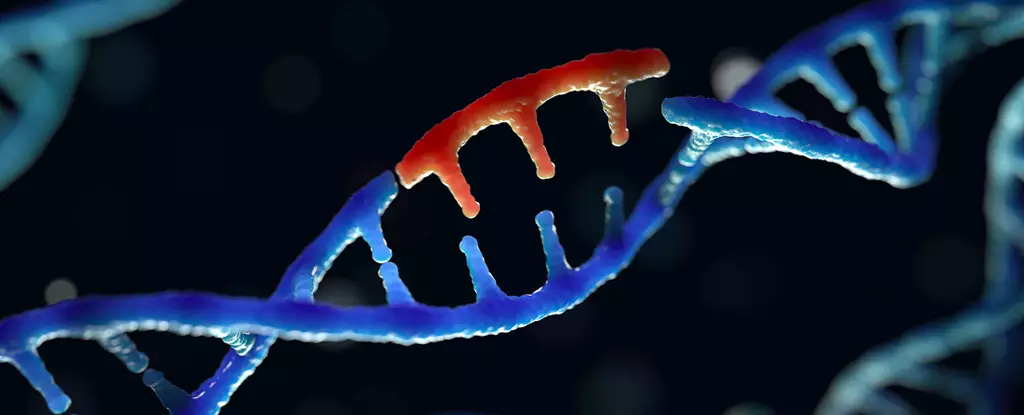When viruses invade our bodies, they sometimes leave remnants of their genetic material behind. These foreign DNA sequences can become integrated into our genomes and passed down through generations. While these viral fragments were once considered dormant, recent research has revealed that they can be reactivated and play a role in various diseases, including cancer. A study led by bioinformatician Atma Ivancevic from the University of Colorado has uncovered that cancers can exploit these ancient virus parts for their own advantage.
Endogenous retroviruses (ERVs) are snippets of viral DNA that have been incorporated into the genomes of mammals, including humans. Initially dismissed as “junk” DNA, ERVs have played a crucial role in the evolution of mammals, particularly in the development of the placenta. However, the activation of ERVs can come with consequences, as they have been linked to cancer development.
In a recent study, researchers found that a specific type of ERV, known as LTR10, was able to regulate the expression of genes associated with tumor growth. When LTR10 was deactivated in colorectal cancer cells, genes responsible for promoting cancer growth, such as XRCC4, were also switched off. This discovery suggests that LTR10 acts as an epigenetic switch, controlling the expression of cancer-related genes in tumors.
By understanding the role of zombie virus parts in cancer growth, researchers may be able to develop more effective treatments. Deactivating the genes regulated by LTR10 in tumor cells resulted in improved responses to cancer therapies in mice. This indicates that targeting these viral remnants could enhance the effectiveness of existing cancer treatments.
While the study provided valuable insights into the role of LTR10 in cancer growth, further research is needed to fully understand the connections between specific genes and cancer progression. The use of patient-derived organoids could help validate these findings and shed light on the mechanisms by which zombie virus parts contribute to cancer development.
As we continue to unravel the complexities of our genetic makeup, it becomes increasingly clear that ancient viral infections have left a lasting impact on our health. By investigating the influence of zombie virus parts on cancer growth, scientists are moving closer to uncovering the underlying mechanisms of complex diseases. This research opens up new possibilities for developing targeted therapies that exploit the vulnerabilities of cancer cells.


Leave a Reply